by Dan Geddes
Hollings’ Works
Soldier’s Way (1920)
Elmer and Louise (1922)
A Green Sled and Other Poems (1923)
Son of the South (1928)
Share the Land (1931)
Call of the Bottle (1937)
Paris Nights (1943) (Screenplay)
Shrapnel! (1945)
One World—Part I (1949)
The Journals of Bernard Hollings (1976)
Bernard Hollings, one of the most underrated twentieth-century American novelists, rubbed elbows with the major figures of the Lost Generation: Pound, Stein, Hemingway, and many other top American writers from the 1920s through the 1950s. Despite some moderate success, he was plagued by alcoholism and ties to the Communist Party. Hollings, dead since 1966, has recently enjoyed a surge of favorable critical opinion. Professor Sven Breckenridge of Princeton, for example, now finds him “as indispensable to America’s literary heritage as H.D.” Yet Hollings’ greatest admirers admit his audience has consisted mainly of writers and would-be writers.
A place in the American literary canon was not inevitable for Hollings, who during his lifetime always felt unjustly eclipsed by the fame of rivals like Hemingway and Steinbeck. Sales of his novels were never brisk. Yet Hollings’ influence on other writers of his time became so pervasive that it would be hard to imagine the twentieth century American novel without him.
Early Life
Bernard Hollings was born in Bloomington, Illinois, the second of George and Marian Hollings’ three sons. George was a clerk for the U.S. Marshal’s Service who had a lifelong interest in literature, including a near obsession with Walt Whitman. Hollings later dismissed his father as “weak, scrofulous, and without a shred of concern for my future as a writer. He was never around.” Hollings’ mother, Marian, was a skilled musician and painter, who also wrote two, unpublished “vanity” novels which she distributed only to friends. Thus, young Bernard grew up in humble surroundings, but was still exposed to the literature.
Early in his teens, Hollings’ persona emerged and it seems to have changed little throughout his adult life. Nearly everyone he encountered describes him as “withdrawn,” “distant,” and even “cold,” possessing “chilling green eyes,” and a “rare intensity.” What few friends he had described as “humorless,” and “possessed solely by the idea of becoming a writer.” No other vocation seemed to hold the smallest interest for him.
Even though he was a bright student, Bernard’s older brother Frederick outclassed him academically, athletically, socially, and by most other measures. Bernard bitterly recorded in his journal that his own mother found Frederick was “more handsome and gifted than me.” Incapable of competing directly with his older brother, Bernard adopted artistic affectations in his early teens—smoking, reading Byron, and writing lachrymose poetry. Even this behavior attracted little attention from his parents. His Father told him: “You’re no Whitman.” At 17, Hollings, a bright, but embittered young man left home.
From the age of 15, Hollings had kept a journal, an invaluable source of information and misinformation about his personal life. His journal claims that after leaving home he rode a boxcar to New York, and lived homeless for 2 years. He claims to be completely self-educated (“all day I read at the 42nd Street branch of the New York Public Library”). But a review of the Hollings archives demonstrates that he earned a good wage working for a cement company and attended night classes in English Literature at Columbia University.
Hollings’ journals also claim that he volunteered for the army when America entered the First World War in 1917. Although he had indeed arrived in Paris by the bloody winter of 1917-18, biographers’ research into U.S. Army records reveal no evidence that he served during World War I or at any other time.
Instead, we have a description of him by Gertrude Stein, whom he met soon after his arrival, and who periodically lent him money:
b.h. [Hollings] a handsome frightened man-child. red-stalk hair. tall, gaunt, verdant eyes, weak chin. always thinking. a black cloud follows him. drinks wine like water. talks only of dostoevsky dostoevsky dostoevsky. needs to read more: henry james. william james. gertrude stein. pound. tom eliot.
Unable to establish himself in Paris, Hollings returned to New York in 1919. He began work on a collection of short stories, nearly all of which depicted soldiers’ lives. From his tentative visits to the Western Front, Hollings produced vivid descriptions of the war. Back home, Hollings felt able to tell people that he had fought at the Battle of Verdun, among other absurdities.
He secured a job as a bricklayer, and at night finished a book of short stories, Soldier’s Way, which he optimistically began hawking to New York publishers.
Style as Meaning: Hollings’ Early Works
After humiliating interviews with several publishers, and an injury to his hand while brick-laying, Hollings was forced to take a job as a messenger for the Western Union Telegraph company, which, before the era of universal telephone service, was probably at the peak of its power. Hollings was bored with his new job and began opening and reading telegrams he was supposed to deliver, forcing him to give preposterous explanations to the recipients or throw away the telegrams undelivered.
Even early critics of Hollings noticed the influence of his messenger job on his style. Consider this passage from Elmer and Louise (1922), Holllings’ epistolary novella about a cold, world-weary World-War I veteran’s long-distance relationship with a young woman.
Dear Louise:
Often I walk the streets at night. Broadway shines like a camera bulb. Snaps animate souls for frozen film. No trees, water, grass. I walk and find nothing and keep moving through the cold city. Crowds press in and gape and move motionless and the motorcars cut the crowd but it rejoins like a split worm.
Love,
Elmer
Clearly, Hollings was finding his voice here. Elmer and Louise was not published in the United States until 1935. On the recommendation of Gertrude Stein, however, he sent the novella to Ezra Pound, then editor of the short-lived journal New Breezes, published in Paris. Pound not only devoted a special issue of New Breezes to a long excerpt from Elmer and Louise, but he also sent it to his young friend Ernest Hemingway, who reportedly was struck by the sparse style of the young telegraph messenger.
Hollings, however, soon tired of his telegraphic style, despite his minor success of publishing in France. “M. Pound thrives on gibberish,” he grumbled in his journal. Hollings quit his messenger job and was reduced to taking a job at a shoe factory. Thoroughly depressed by his station in life, Hollings turned to alcohol and poetry for solace.
After 12-hour days at the shoe factory, Hollings drank bitter whiskey and tried his hand at poetry. After six months of furious labor, his first published poem, “A Green Sled,” appeared in Pound’s new journal, Neo-Imagism, established soon after the poor reception of New Breezes.
A Green Sled
A green sled
rests on the snow-white hill
poised for descent
over the thin mirror
of the frozen pond.
Ezra Pound immediately declared “A Green Sled” to be the “seminal work” of his Imagist school of poetry, writing:
“Green Sled” summarizes the mythology of the Snow White myth with laudable economy. “Green” obviously represents the garb of the Seven Dwarves, standing on the “snow-white” (Snow White) hill (hill an obvious reference to her voluptuousness)—the Dwarves representing homunculi of Freudian impulses. The fragility of the “thin mirror” suggests that Snow White, much like the Evil Queen (hauntingly absent from the poem), will soon plunge into the abyss of time, losing her youthful beauty—especially after the rapaciousness of the Dwarves. Yet even those foul despoilers of beauty must themselves face the “thin mirror” knowing that it is all that stands between them and the “frozen pond,” that is, the abyss of death. (Pound, Neo-Imagism, “A Manifesto for Neo-Imagism”)
Despite publication, Hollings was disappointed with both his own poetic efforts and Pound’s expansive interpretation (“One day last winter I saw a green sled—that’s it!” he lamented in his journals), and so returned to his prose and whiskey.
In Search of Form—Son of the South
Hollings now gave up hope of steady employment, vowing he would “become a writer or die in the process.” After 86 days of furious effort, he was evicted from his 7th Street tenement for non-payment of rent, and forcibly tossed into what he later described as a “breast-shaped snowdrift,” where he fell asleep, caught pneumonia, and nearly died. Yet in his left hand he gripped a large envelope containing the draft of his first full-length novel, Son of the South (1928).[1]
Son of the South, based largely on remembrances of boyhood hunting trips in Louisiana with his father, established Hollings’ literary reputation. Despite his limited time in the South, Hollings created a vast Southern universe populated by memorable grotesques.
Son of the South concerns four generations of the McAlister family, as seen through the eyes of Uncle Sloan (“Slokum”) McAlister, an eccentric of regional reputation, and keeper of unspeakable family secrets. The novel opens with Uncle Slokum on his deathbed in his rickety cabin in the remotest corner of the bayou. Holding his hand is young Ben Scofield, his great-nephew, and an illiterate mute to whom the dying Slokum is senselessly relating the entire sprawling history of the Louisiana McAlisters.
The action begins with great-grandfather Robert Louis (“Sweet Bobby Lou”) McAlister’s 1842 strangulation of a wealthy plantation owner, and theft of his vast lands. We are told a great deal about Sweet Bobby Lou’s epic sexual appetite, which resulted in him impregnating an unseemly number of women: his first cousin Laura; a set of slave sisters, Sharon and Jo JoLinda; Ximena, a Mexican prostitute; countless nameless prostitutes; and Mary Rose Tomlinson, the young wife of a prominent banker, who had earlier convinced her husband she was barren—among many others. Sweet Bobby Lou, however, failed to plant his seed in his long-suffering wife Lilith, whose only vengeance for his philandering was outliving Bobby Lou by 54 years.
After Mary Rose gives birth to McAlister’s eighth illegitimate son from as many women, her husband, Mr. Tomlinson, an excellent marksman, challenges Sweet Bobby Lou to a duel. Tomlinson fires first, and the McAlister patriarch’s testicles are blown off (the same potent bullet then hitting an already pregnant sow in the leg, to the great relief of all), and he later bleeds to death. Lacking legitimate offspring, young Carruthers McAlister, Bobby Lou’s oldest illegitimate son, takes over the helm of the family in this characteristic passage:
…and he, Carruthers, bayou born and bred, legitimate not by law but by default and lack of law; barely 17, a nervous virgin of a boy whom the McAlisters’ legions of rivals in Calhoun County now paid neither heed nor mind nor tribute nor respect, clopped his new-bought boots onto the front porch of the old mansion to face the assembled congregation of his family, some fifty or so including the slaves, many his half-brothers and sisters, likewise sons and daughters of freshly-dead “Sweet” Robert Louis McAlister; yet he, young “Carrie”, perennially the “it” or otherwise object of boyhood games, hook-baiter for his slave half-brothers Josephus, “Corn Bread,” and Hammer Joe—his seniors as men and fishermen; yet he, a pipe too large jutting from his smooth face, now their titular lord and master, in his first act of manhood, addressed them in the sunshine of the May dawn…
The McAlister saga continues through the Civil War (wherein Carruthers is killed at the siege of Fort Donelson), and Juan Roberto Salvador (“Chico”) McAlister, Sweet Bobby Lou’s illegitimate son through Ximena, asserts his rights to the McAlister empire. But soon Chico is deposed by the short-lived alliance of slave woman Jo JoLinda (who seduces him) and Uncle Slokum’s father, Rufus McAlister, a distant cousin with vain designs on the McAlister property (who pole-axes him).
Although Son of the South received unanimous critical praise from New York critics (“an avant-garde triumph,” “a fresh new authorial voice”) other readers found the 800 pages of McAlister family history (most of it told in Slokum’s murky dialect) a challenging read. Confusing matters is the tendency of McAlister males in all generations to be named “Bobby Lou.” The confusion is exacerbated by Uncle Slokum’s pronounced senility and constant digressions. He jumps between events that occurred 50 years apart, and that involved different Bobby Lou’s.
Slokum also relates crucial events—Sweet Bobby Lou’s death, his own adulterous encounter with a travelling preacher’s wife—many times, and each telling varies in critical details. Many events are also told by both the omniscient narrator (like the passage above) and again by Slokum just to accentuate the highly-developed subjectivity of Slokum’s perspective. In a famous passage, Slokum even believes that he himself is long-dead Carruthers McAlister, relating events in first person of which he had only third-hand knowledge—Hollings suggesting ostensibly profound insights about the role of the narrator in literary fiction.
By having Slokum relate the entire McAlister history to young Ben—dumb and illiterate and hence unable to further communicate or even understand the stories—Hollings elegantly comments on the one-sided nature of the writer-reader relationship: how every reader is an end-in-himself, despite his inability to further propagate or even comprehend the tale being told.
Hollings himself remained in desperate financial straits (Son of the South’s first run sold only 3500 copies), even as Pound was openly praising him in Paris salons as the greatest story-teller since Tolstoy. It was under such circumstances that Hollings set sail for Paris on 7 December 1928.
The Paris Years
Finding that yet another literary experiment had not yielded the fame and financial independence that he craved, Hollings arrived in Paris, only to be told that Pound—his expected benefactor and mentor—had moved to Italy. Hollings became desperate, not knowing anyone in Paris (except Stein, who refused even to speak to him after the “arty pretentiousness” of Son of the South) nor speaking the language. For a time he was forced to live in the streets, and to make incessant trips to the Western Union office, hoping to find that his desperate pleas to friends for money had been answered.
Like many poor and disgruntled writers in the early 1930s, Hollings was a ripe candidate for recruitment to the ranks of the Communist Party.
After several visits to his squalid room, two agents of the Paris Communist Party (CP) finally secured Hollings’ membership. They gave him an assignment to join the team of writers for the massive new Soviet Encyclopedia that Stalin had commissioned. Here he wrote entries on a vast variety of subjects, including Soviet Agriculture (“Soviet grain production will feed the whole world by 1936”), Soviet Industry (“soon to produce the automobile of choice, even for brother-workers as far away as Detroit”), and The Great War (“Russia alone bled Germany to death; the West only cleaned up the mess”). Hollings’ journal testifies to the fact that he knew he was being exploited, but he co-operated anyway, because the steady if modest salary gave him the means to pursue his own writing.
But no circumstances could justify Hollings’ contribution to the Encyclopedia’s twenty-five page article devoted to the life and works of Stalin himself:
The name Stalin means many things to many different people. Some people think of his invincible courage; others his generosity to the workers; still others his kindness toward children. Yet Stalin understands us all. Stalin has lived through many great troubles, and is very wise. So when your heart is full of darkness or doubt, think of him, of Stalin, and you will be comforted. And if you are experiencing difficulties with your family, think of him, of Stalin, and these problems will suddenly vanish. And if ever you are struggling in your work, think of him, of Stalin, and soon your problem will be solved…. (Soviet Encyclopedia, “Joseph Stalin”)
Although there is undoubtedly deliberate irony in this passage, Hollings was genuinely attracted to idea of communism. His next novel, Share the Land (1931), depicts a world bankrupt from capitalistic excess. Only Russia is pursuing egalitarian policies, while America starves its workers even as its wealthy bathe in champagne fountains.
Michael Markson, the hero of Share the Land, begins the novel as a simple Kansas farmer. But after the bank forecloses his farm on a technicality, and his wife and young daughters fall ill from malnutrition, Markson becomes attracted to the message of an itinerant preacher, Jacob Christianson, who advocates both a weird Tolstoyan version of Christianity, as well as the redistribution of the huge agribusiness farms into equal plots for poor farm families.
As the years of depression drag on and the unemployment rate reaches 50%, riots break out in New York, Washington, and Chicago. No one in the Army is willing to shoot hungry people, and the Federal Government collapses. Michael Markson, now leader of BOW (The Brotherhood of Workers, pronounced “bō” by its supporters), seizes power in Washington. After a protracted struggle to make all industry and farms state-owned, the Communist ideal is finally realized in America. All non-BOW families now either farm a plot of equal size, or toil happily at a factory for equal wages. BOW families, of course, are, in Orwell’s later phrase, a little “more equal” than others, yet:
Throughout the land the people attended to their duties, focused and content, finally free of the monomania of acquisition, the buying and selling that had preoccupied all their waking moments. As Markson had always known, the land is rich enough for all, if shared freely and equally.
In the Soviet version of Share the Land, the novel ends here: with the benign dictatorship of the proletariat. But Soviet censors had hacked out the last chapter of Hollings’ manuscript (“Dictatorship No More”), in which he describes the gentle and gradual withering away of the dictatorship of the proletariat. Premier Michael Markson surveys the country, decides his work is done, and moves his family to humble Family Plot #430213-819 in the area formerly known as Washington State. The Soviet version, published at the Party’s Paris printing house, was the only version of Share the Land available until 1936, when Covenant Press published the first U.S. version of the novel, including the missing last chapter.
Not only did the Paris CP censor Hollings’ last chapter, after a year or so of deliberation they also excommunicated him from the Party. There is evidence that Stalin, irritated after having read Hollings’ poem “A Green Sled”, considered having Hollings whacked at this time.[2] In any event, Hollings now had neither the support of the CP nor of Gertrude Stein, and so was cut off from the two most important sources of literary patronage in Depression-era Paris. But even the truncated version of Share the Land was causing a minor sensation among American writers, as the gravitas of Hollings’ excommunication suggested to other communist-sympathetic writers, such as Steinbeck and Dos Passos, that Hollings must be a force to be reckoned with.
Call of the Bottle
Hollings returned to New York in February, 1934, where he immediately secured a position for himself in the highest literary circles. The eminent critic Edmund Wilson convinced Knopf to publish a second edition of the half-forgotten Son of the South, a book that American Communist writers were now analyzing for socialist leanings (e.g., Sweet Bobby Lou as capitalist overlord, deserving of his ultimate fate; Uncle Slokum as the march of History; mute, illiterate Ben Scofield as the oppressed worker, etc.). Clifford Odets managed to find an “embryonic socialism” even in Elmer and Louise and A Green Sled and Other Poems, both reprinted in 1935.
Hollings could now live, however humbly, on the royalties of his published works. For the first time in his career he had confidence in himself as an artist. Keeping to his usual pattern of writing about a place where he was no longer living, Hollings wrote Call of the Bottle (1937), an account of alcoholic writers in Paris, probably his most autobiographical work to date.
Heavily influenced by Hemingway’s style, which may well have been influenced by Hollings’ early style, Call of the Bottle follows the youthful wanderings of Stephen Bibbet in 1930s Paris. Bibbet is proudly and self-consciously a member of the “Lost Generation.” He has no visible means of income, yet spends his days in cafés, debating stale ideas with debauched cronies. Leading lives of dissipation and aging fast, Bibbet and his besotted friends can no longer successfully pursue young women as they once did, and so resort to prostitutes. This does nothing, however, to stifle their grandiloquence about their (largely mythical) sexual conquests, facile nihilism, and imminent impact on world literature (all are aspiring writers). A review of the pages of Call of the Bottle reveals startling quantities of dialogue, yet very little story. But perhaps more than anyone (except Hemingway, Fitzgerald, Stein, Cummings, Anaïs Nin, Henry Miller, etc.), Hollings captures the spirit of the American expatriate in Paris in the inter-war years. Consider this passage:
They spent their afternoon at the Café Boisson. Bibbet talked about a story he was writing. Andersen didn’t listen to him. Andersen spoke only of his own novel. Neither looked at the other. Nor did they look at the waiter, yet each ordered more drinks. Bibbet had now drawn the same face on several napkins. The face was of a girl he went to high school with.
“Do you believe in true love?” he asked Andersen.
“No. True love lies only in the hearts of young children—and with God.”
“But you don’t believe in God.”
“Precisely,” said Andersen, taking a drink.
“How many Tom Collins have you had this afternoon?”
“Five or six. Why?”
“You usually say you believe in God after the ninth,” replied Bibbet, looking at his watch. He crumpled up the napkins. “Your belief must be growing stronger.”
Clearly, Stephen Bibbet is as much a spokesman for the Lost Generation as Jake Barnes or Jay Gatsby. Consider:
Even after living there for two years, the desolation of the Boulevard Manqué still weighed heavy and palpable on Bibbet’s heart. He saw a fat baker sweeping his storefront. Bibbet thought of the wafts of dust that always blew down the street. He thought the baker’s sweeping was in vain. The baker smiled at him. He was missing most of his teeth. “All that effort on the dusty sidewalk could have been spent on his teeth!” thought Bibbet, grinning idiotically at the baker as he walked past.
Call of the Bottle became Hollings’ most popular work, his first (and perhaps only) book to draw a “non-literary” audience. Readers identified with the ennui of Hollings’ drunken would-be writers. Almost predictably, popular success led to critical failure, as many critics panned Call of the Bottle as “bad Hemingway,” or still worse as “boring” and “insignificant.” But Call of the Bottle was re-evaluated by scholars in the 1960s, and has been considered a minor classic ever since.
Later Years
Call of the Bottle was to be Hollings’ most popular work. A paperback version appeared in 1939, and Hollings began receiving significant royalties. For the first time in life he enjoyed a moderate affluence. Soon after, in April, 1941, he married Margaret Van Heusen, a young theater critic whom he had met a year before at a Manhattan dinner party. Van Heusen, 27, Radcliffe-educated, beautiful, and financially secure, seemed an ideal wife for Hollings. Long stretches of his journals now describe his new-found marital bliss, efforts that had once gone into his books. Van Heusen was also an acerbic critic of Hollings’ drafts, which may also help account for his diminished output.
But he did continue writing. In 1943 we find his first screenplay, a treatment of his own Call of the Bottle, which RKO Pictures re-christened Paris Nights. Hollings’ stoic, laconic writer-alcoholics are even less exciting on screen than in print, and critics were unanimous in their rejection of Paris Nights. Lionel Trilling lamented it was “like listening to the drunk at the end of the bar for an hour and half.”
In 1945 came a World War II novel, Shrapnel!, the battlefields and atmospheres of which reminded readers more of World War I than of the current war. Hollings never visited Europe during the war, and made no effort to discover the true plight or feelings of the American soldier or anyone else. The settings of the novel seemed derived from newspapers and The Saturday Evening Post, and there is much evidence in Hollings’ notebooks to suggest that his later novels were largely derived from secondary sources.
Hollings spent 1945-49 working on what his journals of the time call “the novel of his life.” At first Hollings only knew he wanted to write something “colossal…while still at the peak of my powers.” He prepared a voracious reading regimen for himself, finishing, in only six months: The Iliad, The Odyssey, The Aeneid, The Old Testament, The Divine Comedy, Don Quixote, Middlemarch, War and Peace, and The Brothers Karamazov. The result was One World—Part I (1949), which depicted the protracted struggle between the great powers for world hegemony.
Rejected years later by William F. Buckley as “Atlas Shrugged for communists,” One World—Part I depicts decades of exhausting war between the capitalist and communist nations. Eventually the ensuing carnage and famine lead to more vocal pleas for a World Government capable of enforcing peace. Eventually, Rik van der Vliet, a Dutchman bearing great similarities to Hollings, emerges as World Leader, with his capital in The Hague.
One World—Part I includes dozens of subplots including: a poor Romanian woman carrying a young child (who may or may not be the illegitimate son of the Pope); a fantasy interlude depicting a special stratum of hell reserved for captains of industry, large land-owners, and “bourgeois writers”; a young Czech captain’s quest for spirituality and enlightenment, resulting in his successive conversion to half a dozen religions; and a Bolivian priest’s discovery of an ancient manuscript (which may or may not be a forgery) that appears to contain The Meaning of Life, written in a language bearing uncanny similarities to Esperanto.
So ends One World—Part I, nearly 1,000 pages of stilted description and little actual story despite its global breadth. Critical reception was not kind, and the public was indifferent. Covenant Press lost over $100,000 on One World—Part I, and even cancelled their option on Hollings’ next book.
Although he was reputedly working hard on One World—Part II, Hollings sank to new lows of slothfulness in the early 1950s. According to his wife’s memoirs, his breakfast now considered of a “screwdriver and two tablets of Vitamin C,” and aside from epic tirades cataloguing his grievances against the world, Hollings could not focus on anything for more than 15 minutes at a time.
October 1951 clearly marked the nadir of Hollings’ life. Van Heusen, who had been supporting him for the past few years, left him for her long-time lover (a shadowy Paris Review editor who later admitted to being a CIA asset). Hollings was bankrupt, and all his books were out of print. Even worse, he was summoned to appear before Senator Joe McCarthy’s House Un-American Activities Committee (HUAC) to testify about his communist past. Hollings’ excommunication from the Party, however, suggested his innocence to much of the HUAC, and Hollings survived the McCarthy Era unpunished. But the accusations and fear of prosecution left him psychologically a wrecked man. Hollings bought a run-down house in Hoboken, New Jersey, and devoted himself solely to his journals, which slowly evolved into a full-blown autobiography, The Journals of Bernard Hollings, published posthumously.
In the early 1960s, Son of the South, Share the Land, and Call of the Bottle were all rediscovered on campus, and republished. On March 18, 1963, Hollings consented to his first interview in eight years, and the last of his life. Many critics had become interested in Hollings’ writing methods:
I rise around 10:00 a.m. and brew a pot of coffee. I put three sugar cubes in each cup, and some freshly ground cinnamon. Then I start writing about anything at all—what I read in the newspaper, what I discussed at dinner the night before, Kant’s metaphysical system, anything. I write for 30 minutes, review it, and throw most of it away without a second thought. Then I eat a sandwich and half a donut and take some more coffee and then I’m ready to write!
I write on an old Smith-Corona typewriter that I found in a second-hand store down in the Bowery. The shop-keeper claimed it had once been owned by Mark Twain. I use paper of at least 25% rag content—even for drafting; it just feels better when the keys splat against it.
I still smoke the Chesterfields I have for many years; I chain-smoke when I write, and even when I don’t. (Laughs hoarsely.) I’ve used the same glass ashtray for all of my books.…Only after everything is in its proper place—coffee, cigarette, donut—do I start to compose. Although I aim for perfection in the first draft, perfection is elusive….The first chapter of Son of the South [a painstaking thirty-page description of Uncle Slokum’s bedroom] alone took me 45 drafts, and I’m still not happy with it.…I write for only 2 hours a day, no matter how well or badly it is going. I often stop in mid-sentence when the two hours are up, just so I know I will have something to write the next day.
Despite a renaissance of interest in his work, Hollings was never even nominated for the Nobel Prize that he so ardently desired.
Having failed to re-establish contact with his family, and with most of his fellow writers still keeping their distance, Hollings lived his remaining years alone in Hoboken, still drinking heavily. He died in bed of a massive stroke on January 24, 1966.
Hollings’ Legacy
Although his death earned little attention at the time, a critical resurgence was already underway at the time of his death. In 1975 Dr. Sven Breckenridge of Oberlin published Bernard Hollings (still considered the definitive study of Hollings), which sparked a storm of critical debate. Breckenridge’s thesis—that Son of the South was a decisive influence on Faulkner, and Share the Land on Steinbeck’s Grapes of Wrath—was attacked by most literary critics at the time, but is now generally accepted. The critical interest in his work led to the publication of The Journals of Bernard Hollings in eight volumes, an invaluable source for scholars. Hollings’ work is now regularly excerpted in literary anthologies, taught in some universities, and is often the subject of doctoral dissertations. Even though he is now little read outside of college campuses, Bernard Hollings’ literary legacy—for which he expended his life-strength—has been assured.
[1] Later in life, Hollings lamented the “invaluable notebooks and nearly completed masterpieces” he supposedly abandoned at the tenement, but his friends of the period are in agreement that Hollings’ literary output was “nearly nothing” before the burst of inspiration that produced Son of the South. They describe a “perpetually drunk” Hollings, “barely able to sign his name” or discuss anything loftier than the “hat of some trollop at the local speak-easy.”
[2] See Appendix D of Paul Roberts’ Stalin: Man of Steel for a long list of famous writers that Stalin considered executing—some successfully; others, like Hollings, never made the top of the list, and he seemed to forget about them.

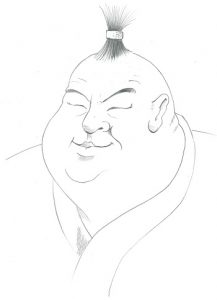
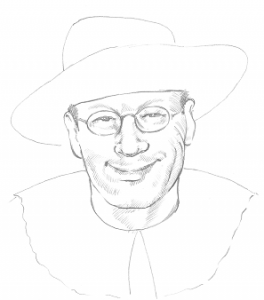
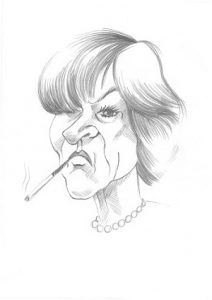
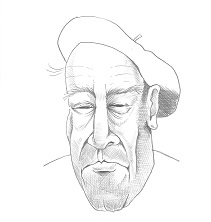
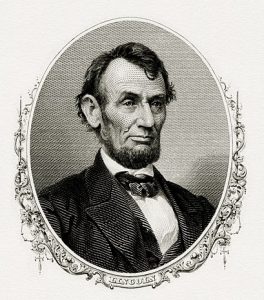




Be First to Comment